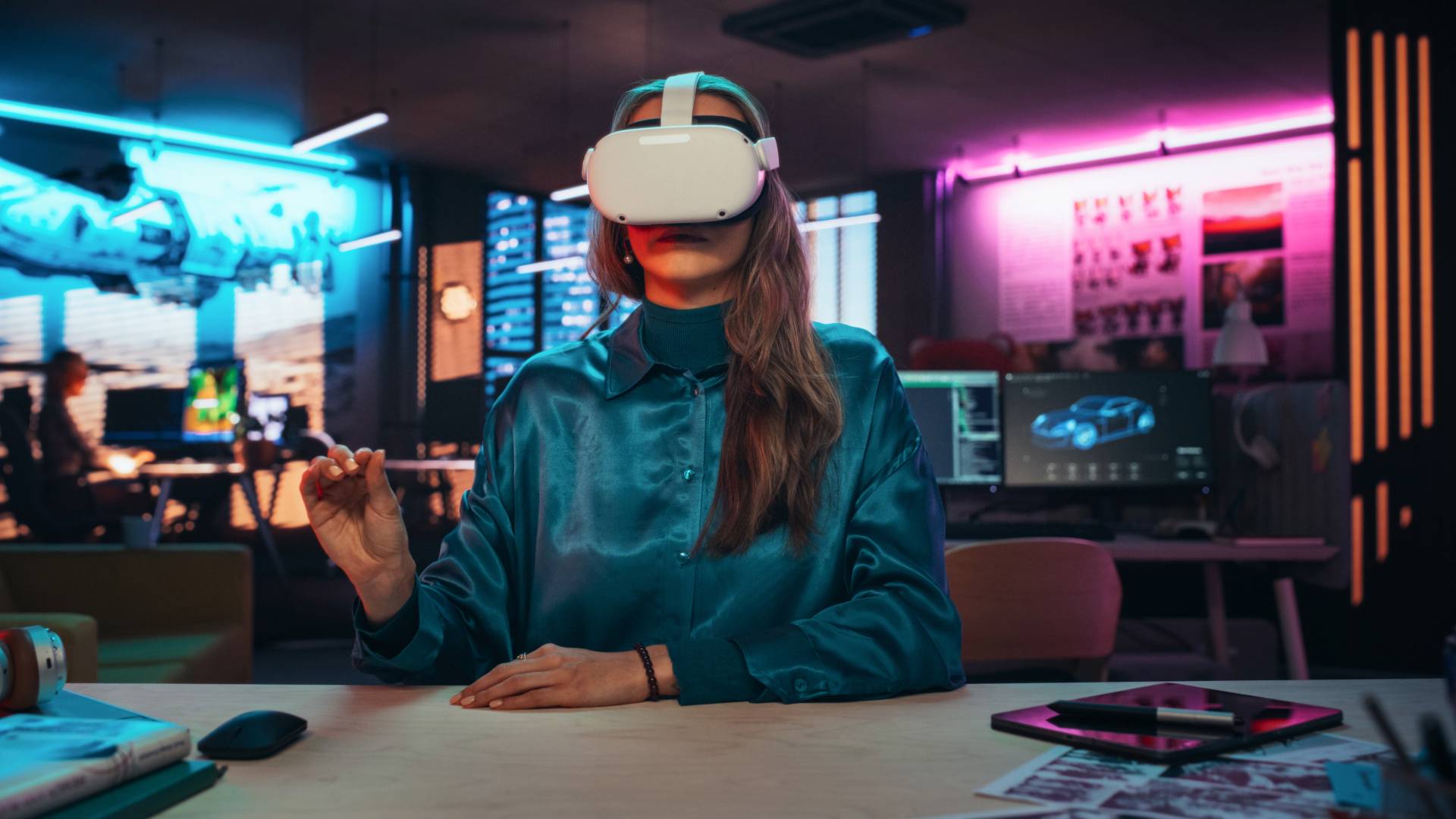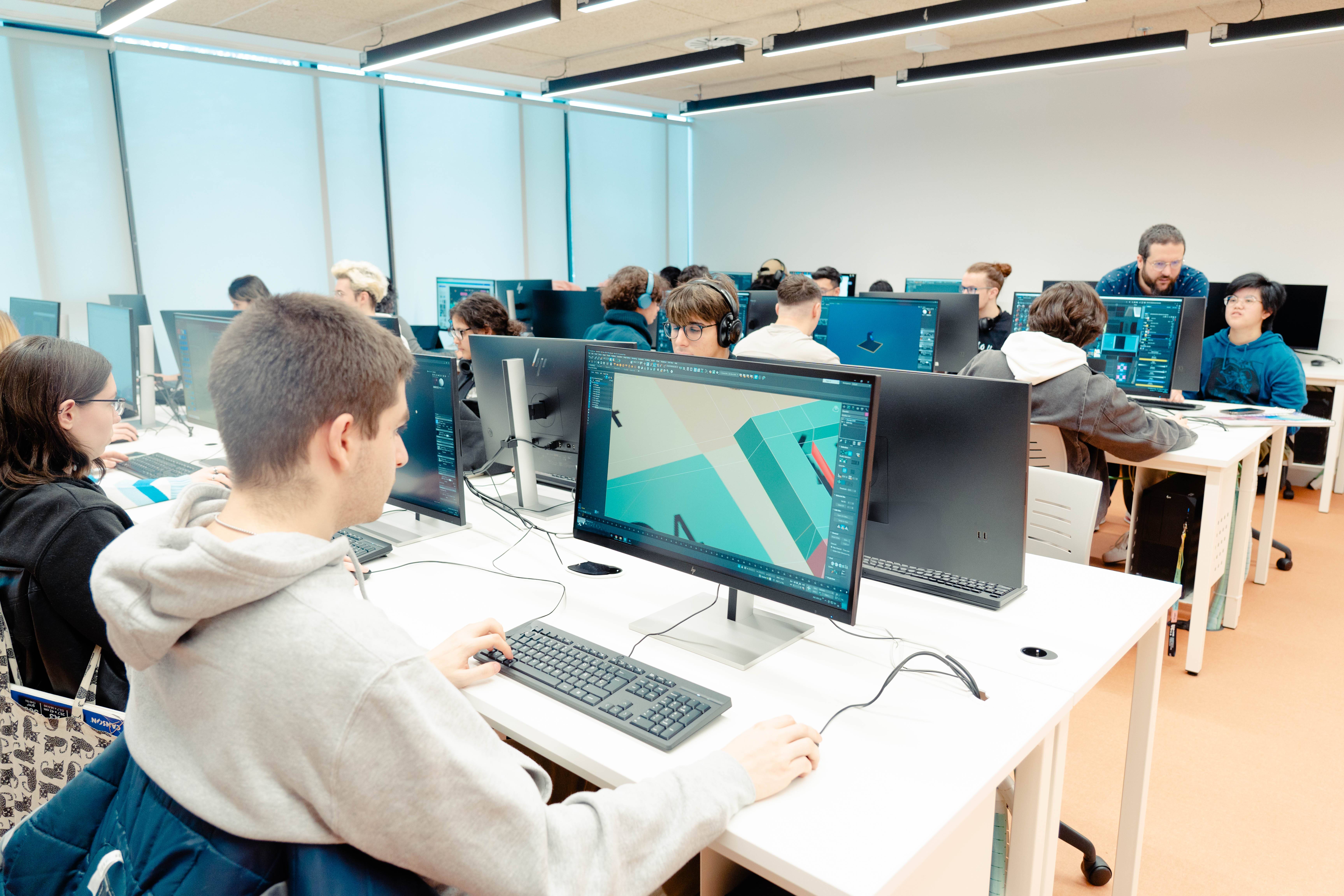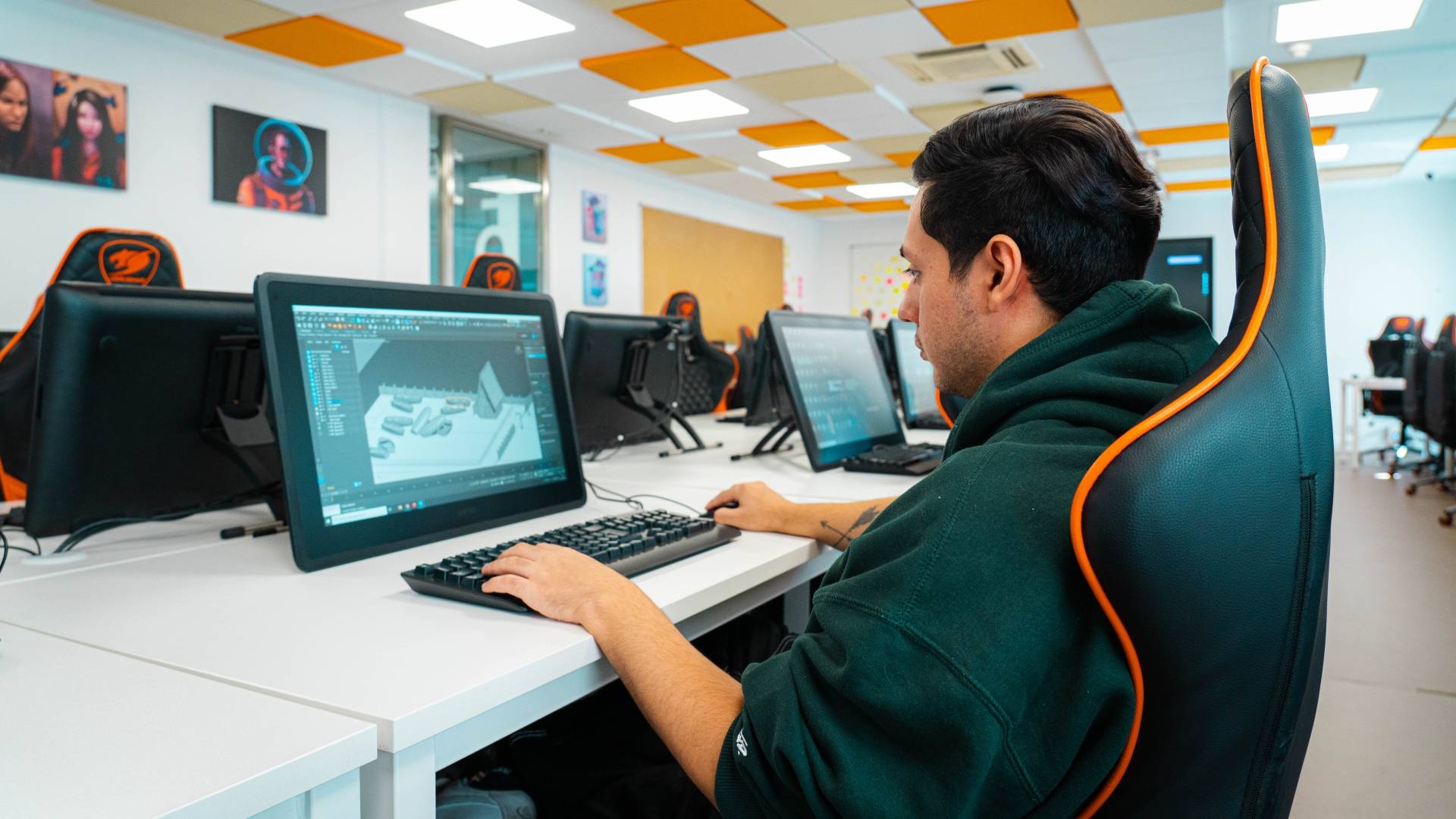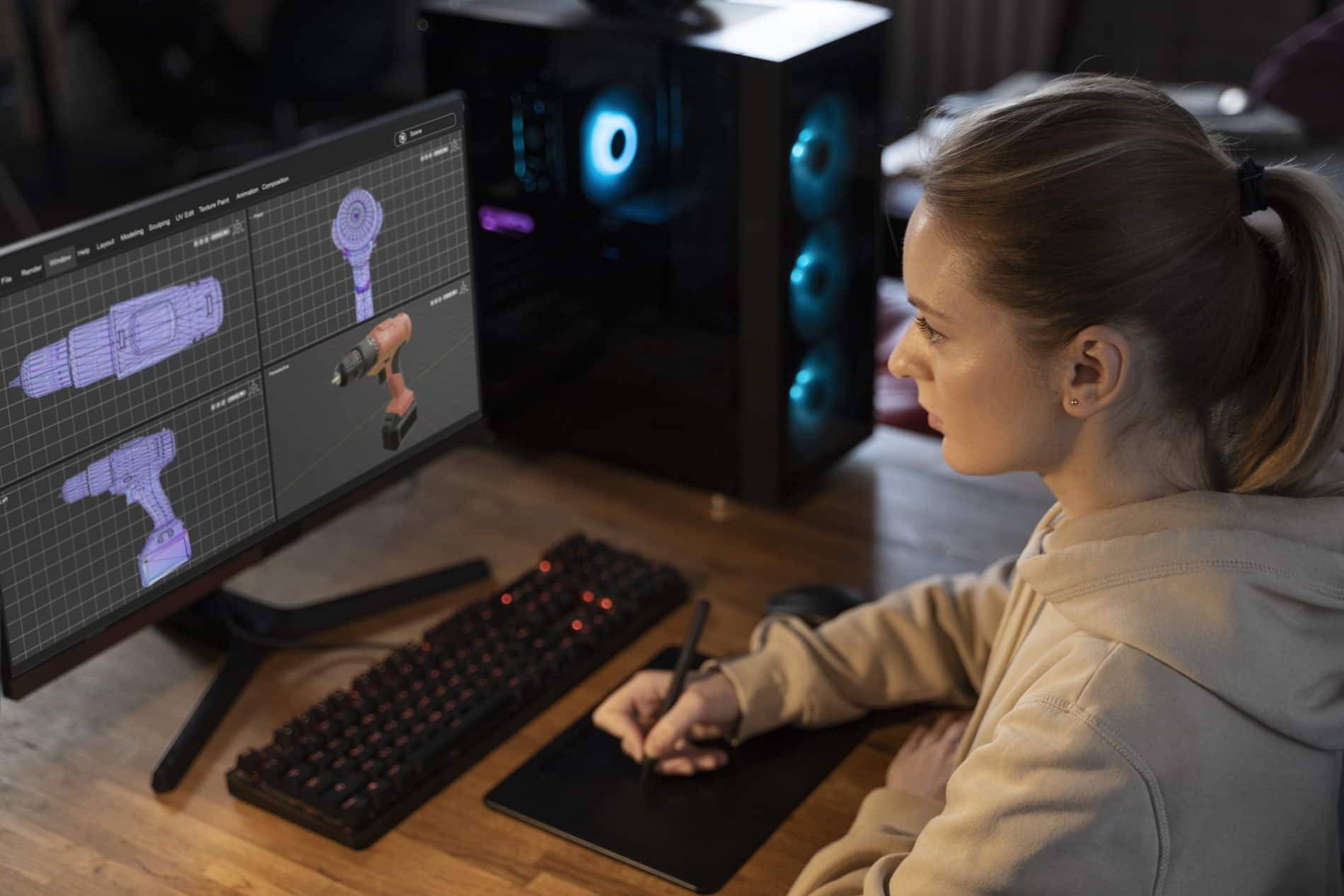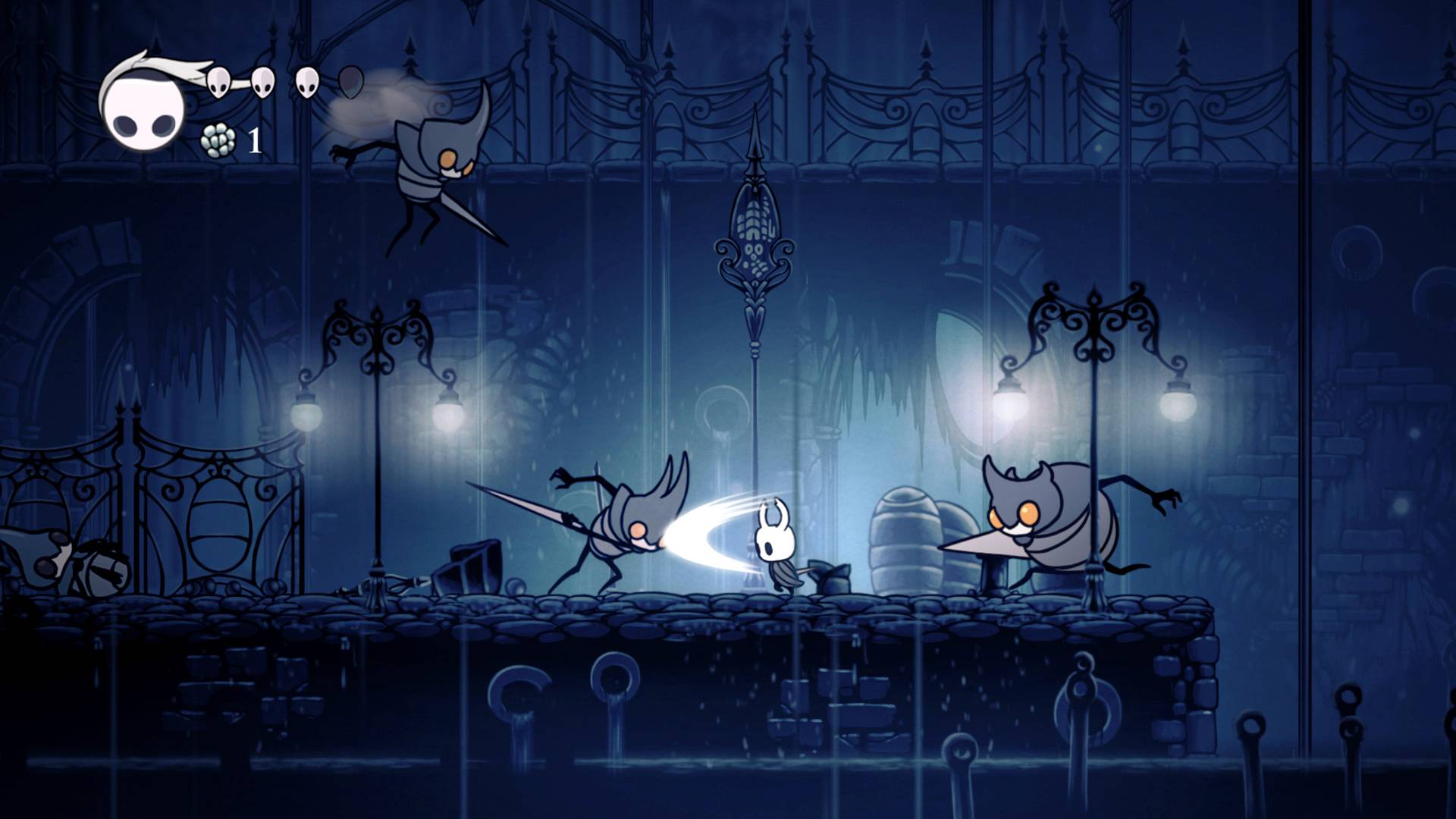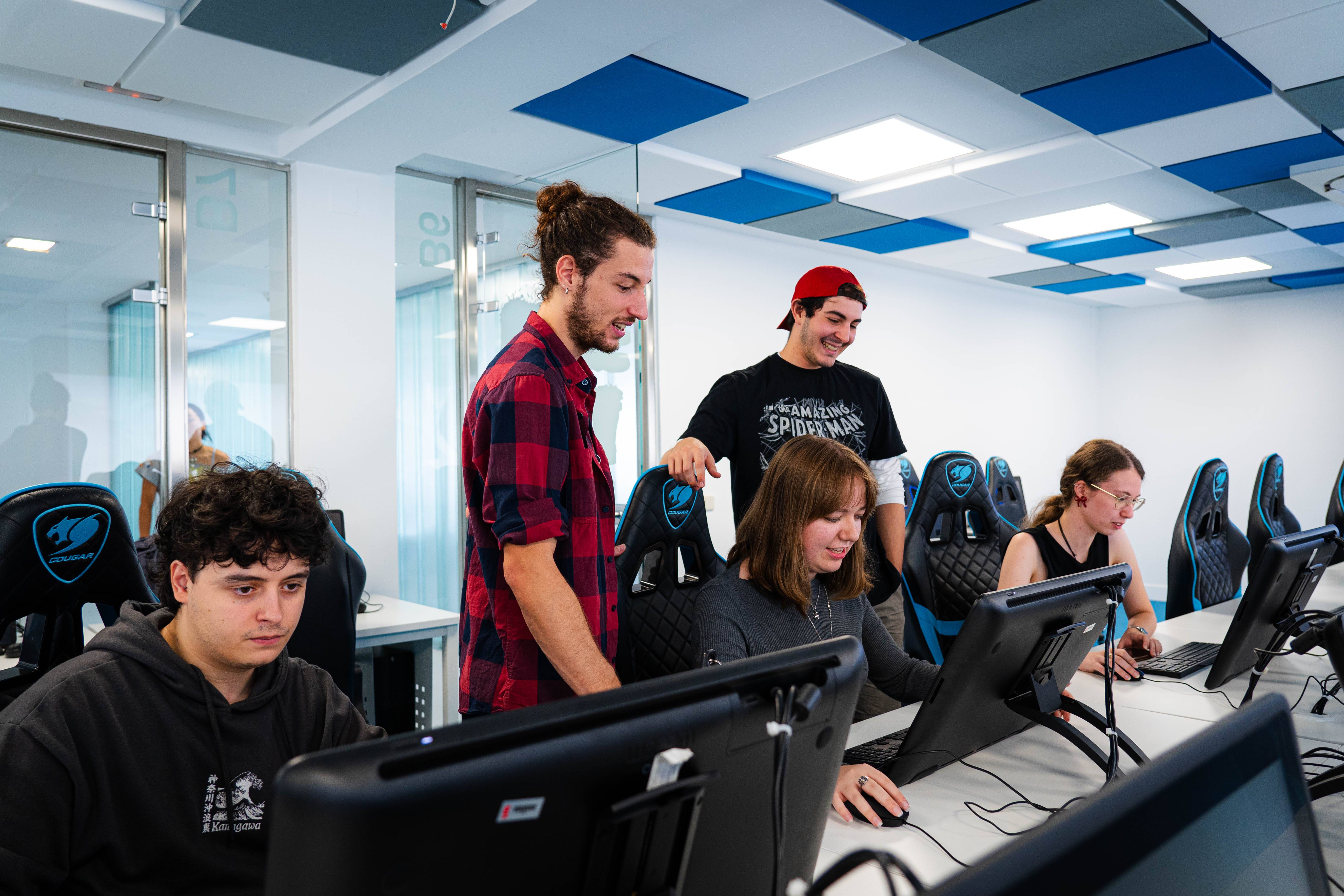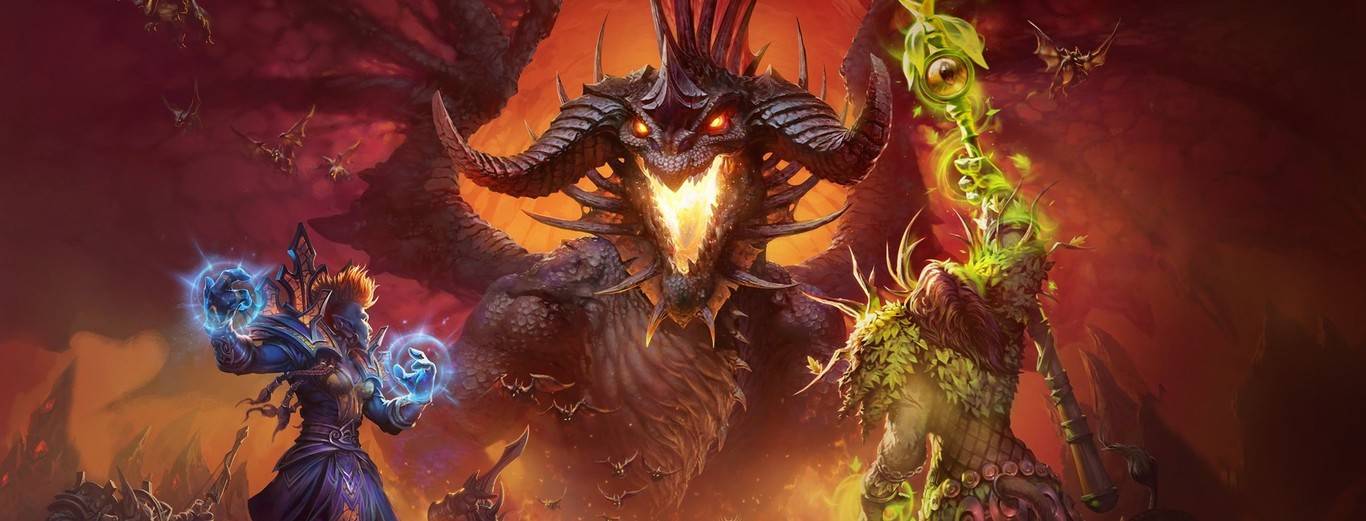Innovation and creativity in videogame design: the use of AI
Artificial Intelligence (AI) is revolutionising many fields, and game design is no exception. At UDIT University, where the Bachelor's Degree in Design and Development of Video Games and Virtual Environments is taught, we explore how AI can transform the gaming industry, boosting creativity and optimising game development. This article explores the synergy between creativity and intelligent algorithms, offering concrete examples of how artificial intelligence is shaping the future of video games.
AI: The Potential of Technology
In game design, AI is a powerful tool that allows developers to create more immersive and personalised game experiences.Artificial intelligence in video games can improve gameplay, user experience and production efficiency. For example, intelligent algorithms can automatically generate levels, optimise codes and customise game difficulty based on player progress. This technology not only saves time and resources, but also opens up new creative possibilities for designers. A prime example of artificial intelligence in video games is its use in the creation of non-playable characters (NPCs). These characters, thanks to AI, can exhibit more realistic and authentic behaviours, contributing to a more vivid and interactive game world. In addition, video games with artificial intelligence can dynamically adjust the difficulty of the game to maintain the balance between challenge and enjoyment, adapting to the player's skills. At UDIT, students of the Bachelor's Degree in Video Game Design and Development have access to state-of-the-art video game design software. These video game design programs incorporate AI tools that facilitate the creation and customisation of content. For example, advanced graphics engines enable digital animation and game design with greater precision and detail, while machine learning algorithms aid in the simulation of realistic behaviour and AI-based decision making. In addition to these applications, AI can be used to enhance game narrative. By analysing player behaviour and decisions, AI can adapt the story in real time, offering different outcomes and unique experiences for each player. This adaptive capability significantly enhances player immersion and engagement with the game's story. The adoption of machine learning technologies in the gaming industry allows developers to explore new creative strategies in the implementation of artificial intelligence in games. For example, AI can be used to personalise the player experience, recommending games based on their preferences and past behaviours. Not only that, artificial intelligence applied to video games can help simulate realistic behaviour in characters and environments, creating more immersive and authentic gaming experiences.
Challenges and Opportunities
While AI offers many advantages, it also presents challenges. One of the main challenges is ensuring that human creativity is not limited by the capabilities of algorithms. At UDIT, we emphasise the importance of maintaining abalance between human creativity and artificial intelligence. Video games are a form of art and entertainment that reflect culture and society, and it is crucial that designers maintain their artistic vision while taking advantage of AI. A major challenge is the need to develop algorithms that can understand and replicate the subtleties of human behaviour. While AI can simulate behaviours and decisions based on data patterns, there are still aspects of human creativity and intuition that are difficult to codify. Developers must work closely with AI experts to design algorithms that can learn and adapt more effectively to the complexities of human behaviour. In addition, the implementation of AI in video games raises ethical issues, such as the privacy of player data and the responsible use of technology. It is essential that developers consider these issues and work to ensure that AI is used in an ethical and player-friendly manner. At UDIT, students are taught to be aware of these ethical considerations and to integrate responsible practices into their work.
Future of AI Game Design
The future of AI game design is promising. As technology advances, we will see greater integration of intelligent algorithms into the creative process. This will not only enable the creation of more complex and detailed games, but will also open up new opportunities for innovation in narrative and gameplay.Students on the Game Design degree at UDIT will be at the forefront of these developments, ready to lead the next generation of game designers and developers.AI has the potential to revolutionise game design in many ways. For example, procedural generation, which uses algorithms to create game content automatically, can produce vast and varied game worlds without the need to design each element manually. This technique can be used to create unique environments, dynamic challenges and adaptive content that responds to each player's play style. Another exciting area is the development of AI characters that can learn and evolve throughout the game. These characters can developcomplex relationships with the player and other NPCs, creating a richer and more emotionally resonant gaming experience. Developers can use AI to design characters that not only react to the player's actions, but also remember past interactions and adapt their behaviour accordingly. At UDIT, we are committed to training the next generation of designers and developers who know how to harness artificial intelligence to create innovative and exciting gaming experiences. If you are passionate about game design and want to be at the forefront of technological innovation, we invite you to explore our Game Design and Development Degree and discover how AI can empower your creativity and skills. Our educational programmes are designed to provide students with an in-depth understanding of AI technologies and their application in game design. From fundamental theory to advanced practice, students learn how to use AI tools and integrate these technologies into their game projects. This holistic approach ensures that our graduates are well prepared to meet the challenges and seize the opportunities in the field of game design.
more information
What bachelor's degree do you need to study video games?The 10 most played games in the world. What is video game design? Discover the career opportunities for this degree.

